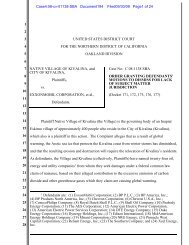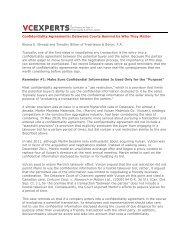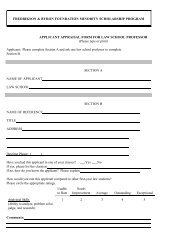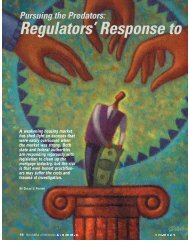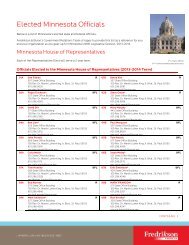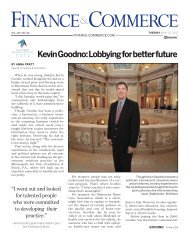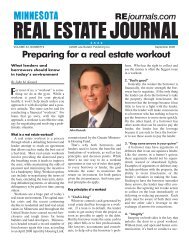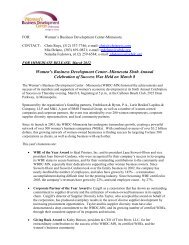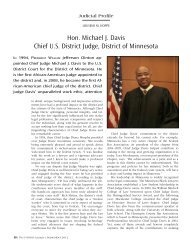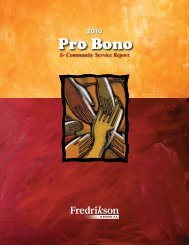Fin 48 - Fredrikson & Byron PA
Fin 48 - Fredrikson & Byron PA
Fin 48 - Fredrikson & Byron PA
You also want an ePaper? Increase the reach of your titles
YUMPU automatically turns print PDFs into web optimized ePapers that Google loves.
standards. 2 It should not be surprising, therefore, that after the SEC reviewed Enron’s<br />
financial reporting of its absurdly abusive tax shelters, it was not content to treat that<br />
phenomenon as aberrant and sufficiently addressed under current law. It was also not<br />
satisfied merely to call upon the FASB to adopt tighter tax position reporting rules for<br />
aggressively tax-sheltered transactions. Rather, it commissioned the FASB to adopt new<br />
standards for the reporting of all income tax positions, no matter how benign or vanilla<br />
they might be.<br />
B. What Was Wrong With FAS 109 and FAS 5?<br />
Prior to FIN <strong>48</strong>, most companies reported their FAS 109 income tax liabilities on<br />
the basis of their filed tax returns, as long as they and their auditors were satisfied that<br />
additional tax liabilities were not “probable” (to a 70-75% or greater likelihood) for FAS<br />
5 loss contingency purposes. If, on the other hand, it was 70-75% or more likely that a<br />
disputed tax return position would not be sustained if attacked, the enterprise was<br />
obligated to reserve for that potential liability on its financial statements. This “probable”<br />
standard was also consistent with international accounting standards as reflected in IAS<br />
12.<br />
To justify subjecting every enterprise applying generally accepted accounting<br />
principles to its new income tax position reporting regime for all transactions, activities,<br />
and events, the FASB asserted that corporations had been inconsistently and inaccurately<br />
applying existing FAS 109 income tax position reporting rules. In neither its published<br />
materials leading up to FIN <strong>48</strong> nor in FIN <strong>48</strong> itself, however, did the FASB cite any<br />
2 As Lord Chesterton observed, “[w]hen you break the big laws, you do not get liberty;<br />
you do not even get anarchy. You get the small laws.”<br />
2



